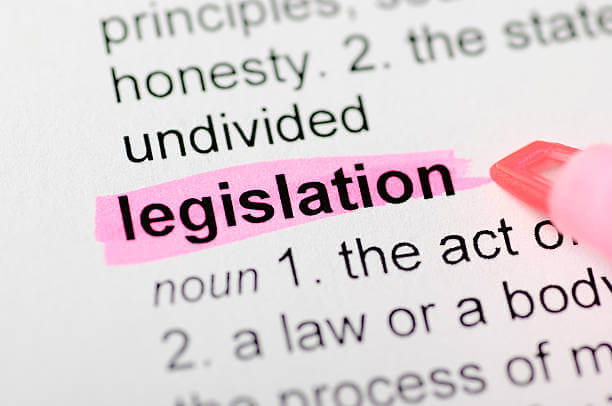Legislation Updates – April
Acts, Bill, Employment Law, General, Government / 24 April 2024

Proposed Bills:
Employment Relations (Employee Remuneration Disclosure) Amendment Bill
The Employment Relations (Employee Remuneration Disclosure) Amendment Bill was introduced to the House on 20 March 2024.
In New Zealand, some individual, and possibly collective, employment agreements include terms prohibiting employees from discussing or disclosing their remuneration (including salary, wages and other conditions) to third parties, including other employees of the same employer. These terms are currently permitted and breaching these terms may be considered a breach of good faith or a disciplinary matter subjecting the individual to detriment or adverse treatment by their employer.
This Bill seeks to amend the Employment Relations Act 2000 to protect employees who discuss or disclose their remuneration from adverse consequences in relation to their employment. The aim of this Bill is that it will lead to greater transparency in pay and allow any pay disparity to be more easily identified and remedied.
Crimes (Increased Penalties for Slavery Offences) Amendment Bill
The Crimes (Increased Penalties for Slavery Offences) Amendment Bill was introduced to the House on 21 March 2024.
This Bill, if enacted, would strengthen the current slavery penalty provisions in the Crimes Act 1961.
Repeal of Good Friday and Easter Sunday as Restricted Trading Days (Shop Trading and Sale of Alcohol) Amendment Bill
The Repeal of Good Friday and Easter Sunday as Restricted Trading Days (Shop Trading and Sale of Alcohol) Amendment Bill was introduced to the House on 11 April 2024.
In New Zealand businesses are prevented from opening or have restrictions on their operations on Good Friday and Easter Monday. Under the Shop Trading Hours Act 1990 employees may refuse to work on Easter Sunday and are not required to provide their employer with a reason for refusing to work on Easter Sunday. The employer can’t compel the employee to work on an Easter Sunday or to treat the employee adversely because of this.
This Bill seeks to remove the current restriction on trading and selling alcohol on Good Friday and Easter Sunday. This Bill will retain the existing employee protections under the Shop Trading Hours Act 1990 that apply in respect of Easter Sunday and extend these protections to Good Friday.
ACC Updates:
Changes to ACC Payments from 1 April 2024
ACC minimum payments have increased in line with minimum wage changes.
The new gross minimum rate of weekly compensation payable to a full-time earner will be $740.80 (equal to 80% of the adult minimum wage of $926.00 for a forty-hour week.)
Final changes to ACC’s Accredited Employer Programme confirmed
Changes to ACC’s Accredited Employer Programme (AEP) are intended to modernise health and safety assessment requirements, removing excessive compliance and increasing flexibility for accredited employers.
Under AEP, accredited employers take on ACC’s role to assess and manage claims for their employees’ work injuries. In return for taking on the financial liability and claim management of these work injuries they receive a reduction in their annual ACC levy. The 475 business entities in the programme cover 21% of New Zealand’s workforce.
The changes will take effect from 1 April 2025, so accredited employers and ACC have time to prepare and adapt their processes and systems.
The changes focus on four areas:
- Claims and injury management assessment: Improving assessment of the claims and injury management that also better captures workers’ experience and remove unnecessary compliance restrictions.
- Performance monitoring: A new performance monitoring model to give accredited employers access to clear and up-to-date information on their performance, the ability to lift performance, and incentives to perform better.
- New health and safety assessments: An updated ACC health and safety audit process and a new option of ISO 45001 certification will drive higher quality health and safety systems.
- Updated pricing options: More choices under the Partnership Discount Plan, enabling employers to take on longer claims management periods, providing workers with complex injuries greater assurance and more continuity of support.
Health and Safety Updates:
The Health and Safety at Work (Adventure Activities) Regulations 2016 were amended on 1 April 2024 by the Health and Safety at Work Adventure Regulations 2023, to:
- Introduce a duty under the Regulations for adventure activity operators to take all reasonable steps to inform persons seeking to participate in adventure activities of any serious risks they may be exposed to by participating in the activity.
- Expand WorkSafe’s powers to refuse, suspend, and cancel registration; allow WorkSafe to add conditions to an adventure activity operator’s registration; and provide operators with review and appeal rights where these powers are exercised.
- Establish a new registration process that requires adventure activity operators to register directly with WorkSafe (rather than indirectly via their safety auditor) and provide more detailed information upon registration.
- Introduce sector-specific notifiable events which adventure activity operators are required to report to WorkSafe.
Message for Employers
Please feel free to reach out to our team if you have any questions or would like to understand the application of any of these changes to your workplace.
Disclaimer: We remind you that while this article provides commentary on employment law, health and safety and immigration topics, it should not be used as a substitute for legal or professional advice for specific situations. Please seek legal advice from your lawyer for any questions specific to your workplace.